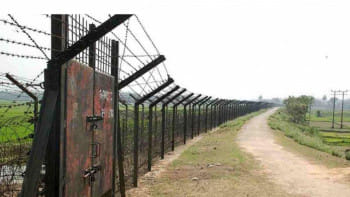Bloggers wary of police now

With five bloggers hacked to death since 2013, many online activists are starting to believe police will not protect them but may cause harm to them instead, by leaking their information to killers.
This feeling of insecurity is because of the inaction on the part of the law enforcers. And stern warning by some police high-ups against secular bloggers following the killing of Niladri Chattopadhyay Niloy early this month has only added to that sense of unease, The Daily Star has learnt talking to over a dozen bloggers.
Some high officials have recently warned of legal actions against the bloggers whose write-ups would hurt religious sentiments. An official even labelled both the writers and their killers as extremists. Such statements from those responsible for protecting citizens would actually encourage religious fanatics, they believe.
Amid such a situation, some bloggers have stopped writing, some have changed their online identity while some are trying to leave the country.
"I would do anything but disclose my address and phone number to the police now. I believe if I do it, the information will be leaked to the Islamists in no time," said Shakil Ahmed, a Dhaka-based blogger who writes against religious extremism.
Pritom, an online activist from Barisal, recently received threats from suspected Islamist militants who accused him of being an "enemy of Islam".
"I don't know where my enemies are," he said.
Even fellow bloggers did not know the real name and location of online activist Oyasiqur Rahman, yet he was tracked down and killed, Pritom added.
"Only law enforcement agencies have the technologies to uncover the real identity of an online activist using a penname and his location," the blogger said.
Another blogger, who used to write under the pseudonym of Prithu Sanyal, had the same feeling after four youths intercepted him at a remote village in Sunamganj weeks after secular writer Ananta Bijoy Das was hacked to death in Sylhet on May 12.
"They told me, 'It's your turn now. Get ready.' I was shocked and surprised to see that they had located me. I never used my real identity while writing."
He stopped writing after that.
"I won't go to the police because I don't know who the enemy is," he said.
Another blogger, requesting anonymity, said: "In the last couple of years, I haven't found even a single statement that would make me trust police."
Fed up, he is now trying to leave the country.
"I have changed my email ID, phone number and address, and removed every picture of mine from the social media," said another blogger, also preferring anonymity.
"I wish I could change my face as well," said the online activist, who too is now trying to go abroad.
Blogger Maruf Rosul, also a Gonojagoron Mancha organiser, said no matter how insecure they felt, very few of them would ever go to the police.
"Firstly, they [bloggers] don't have any reason to trust police. Secondly, how long will the police protect individual bloggers? Unless they catch the masterminds, nobody is safe," he added.
"Bangladesh is not a secular country anymore. The police are well aware of the government's indifference to bloggers getting killed," said blogger Ananya Azad, 25, who recently moved to Germany for safety.
Four secular bloggers -- Avijit Roy, Oyasiqur, Ananta Bijoy Das and Niladri Chattopadhyay Niloy -- have been killed in the past seven months. Another blogger, Ahmed Rajib Haider, was hacked to death in February 2013.
Law enforcers' callousness in protecting bloggers is further evident in Niloy's allegation before he was hacked to death inside his Goran home on August 7.
In a Facebook post, he claimed he had gone to two police stations to file a General Diary (GD) seeking safety, but had been refused in both cases.
Blogger Shakil had almost a similar experience.
In January last year, he went to the capital's Hazaribagh Police Station to lodge a GD after getting death threats on his phone, but to no avail.
"The duty officer had told me that filing a GD was unnecessary and that police would patrol roads near my Hazaribagh residence at night and accompany me from Zigatola Bus Stand to my residence, if necessary," he said.
"But they did nothing until I contacted a friend of mine who is a high official in the police 10 days later," said an angry Shakil.
Rights activist Sultana Kamal thinks bloggers' disappointment with the police is justified.
"Judged by the way police are acting, there are reasons for the bloggers to suspect that they won't get adequate protection from the police.
"Moreover, the recent comment by the IGP [inspector general of police] on the bloggers' writings and the home ministry officials' decision, as we we've heard, to identify and arrest the people whose writings may hurt religious sentiments, add to their fear that the police are not taking a neutral stand here."
"I feel police should be more active in bringing the killers to justice rather than going after the bloggers," she added.
After Niloy's murder, IGP AKM Shahidul Hoque warned bloggers against "crossing the limit" while writing.
When specifically asked about the bloggers' allegations, Deputy Commissioner (Media) Muntasirul Islam of Dhaka Metropolitan Police said their main objective was to ensure security for citizens.
"People want security from us and we provide it. This is how the system works.
"I urge all to have faith in the police. If any official in a police station refuse to register a GD and to take any step, the victims should report it to their supervising officers," he said.

 For all latest news, follow The Daily Star's Google News channel.
For all latest news, follow The Daily Star's Google News channel. 



Comments